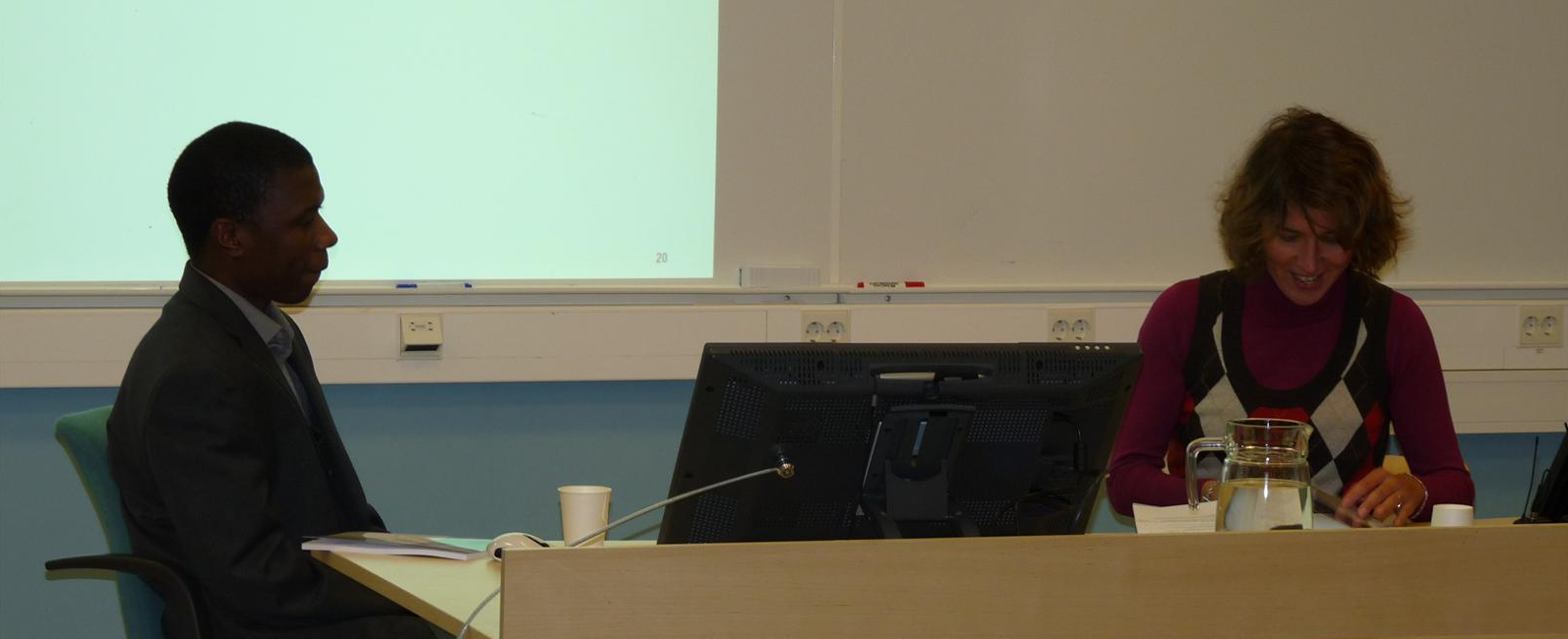The presence and meaning of social norms and rules in
online games
Or the hybridization of the normative system…
Licentiate seminar Johan Eliasson
Interaction design for mobile learners Design guidelines for location-based and contextual learning supported by mobile devices
Respondent: Johan Eliasson
Opponent: professor Mikael Wiberg, Uppsala universitet
Examinator: professor Paul Johannesson, DSV
Huvudhandledare: professor Robert Ramberg, DSV
Mturi Elias Licentiate
A Universal Business Process Model Repository. Mturi Elias presented his licentiate on business process model repositories. The photo shows Mturi and Jelena Zdravkovic who was the opponent. Louise Yngström was the examiner, and Paul Johannesson the supervisor.
Abstract
Business Process Management (BPM) has become one of the most important instruments to help modern organizations meet their business goals and achieve competitive advantage. Business process modelling plays a vital role in BPM. Business process modelling is a complex, time-consuming and error-prone task. However, the efforts made to model business processes are seldom reused beyond their original purpose. Rather than modelling business processes from scratch, analysts can derive process models by redesigning existing ones. Business process model repositories provide a central location for storing and managing process knowledge for future reuse.
This thesis starts with the observation that the existing process model repositories for supporting process model reuse suffer from several shortcomings that affect their usability in practice. Firstly, most existing process model repositories are proprietary — they are not publicly open. Therefore, they can only be enhanced or extended with new models by the owners of the repositories. Secondly, it is difficult to search and navigate across repositories because they follow different business and process classification schemes. Thirdly, process models are not goal related, therefore making it difficult to gain an understanding of the business goals that are realized by a certain model. Finally, some repositories have limited scope, meaning that they are domain specific.
Following a design science research method, this thesis addresses the above shortcomings by proposing a universal process model repository to store and manage process knowledge for future reuse. The proposed repository is grounded on three original and interrelated contributions: (1) a set of requirements that a process model repository should possess to increase the probability of process model reuse; (2) a business process metadata model for annotating process models to facilitate searching for process models, navigating the repository and understanding the process models; (3) a generic data model with a common process description format (language independent) for capturing and storing process models from different modelling notations. While the main objective of the research is to provide a design for a unified process model repository that is language independent and open to the public community, the above-mentioned contributions are the results of the work carried out towards the final results.
